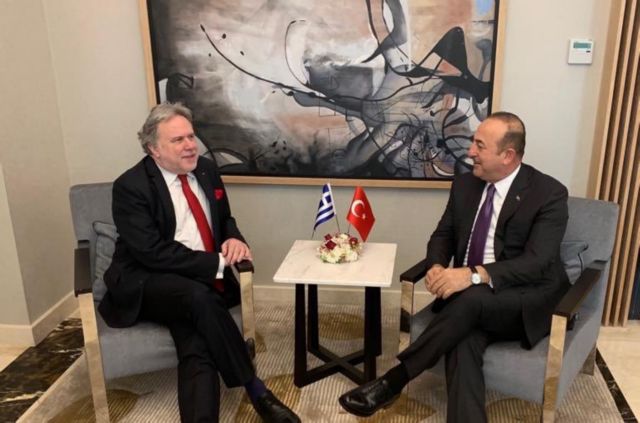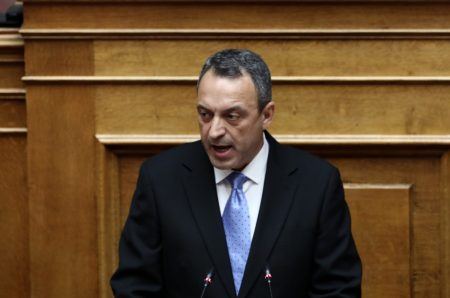Foreign Minister Yorgos Katrougalos and his Turkish counterpart Mevlut Cavusoglu held talks in the Turkish seaside resort of Antalya as the first step toward a sweeping dialogue that Alexis Tsipras and Tayyip Erdogan had announced during their recent meeting in Ankara.
«We are here to promote the positive agenda agreed to by our two leaders a while ago in Ankara,” Katrougalos said during joint statements.
«A part of the positive agenda is how to guarantee respect for international law and the de-escalation of tension in our region through the implementation of the agreed measures of trust by reviewing their better implementation.»
The overarching issue is to find ways to defuse tensions in the Aegean and the Eastern Mediterranean, where Ankara is doing all it can to impede Cyprus’ energy programme.
The meeting came straight on the heels of Katrougalos’ interview with Turkey’s Anadolu Press Agency in which he asserted that Turkey has rights in the Eastern Mediterranean due to its long coastline and that Ankara must be part of the energy equation in the region. The remarks stirred a strong backlash in Athens.
Katrougalos reiterated today that under the UN Convention on the Law of the Sea Turkey has rights in the Eastern Mediterranean, but he did not elaborate what those might be.
«We know that Turkey has certain rights regarding energy resources in the eastern Mediterranean,» Katrougalos said.
Turkey has rights based on international maritime law and Greece is aware of that, he added.
Cavusoglu again declared that no energy project in the Eastern Mediterranean can go forward without Ankara’s approval, even as Katrougalos once again issued calls for the need to respect international law in pursuing a rapprochement.
Cavusoglu’s pronouncement came one day after US Secretary of State Mike Pompeo along with the leaders of Cyprus, Israel, and Greece announced in a joint statement that they intend to guard against “malign influences” in the Eastern Mediterranean, a thinly veiled reference to Turkey.
Focus on ‘Turkish Muslim minority in Greece’
Cavusoglu also raised demands regarding the Muslim minority in Thrace, which under the Treaty of Lausanne is recognised as a religious and not an ethnic minority.
“At the meeting, issues in our relations, in particular the Turkish Muslim minority in Greece and the Aegean were discussed in a frank, sincere and honest manner,” the Turkish foreign ministry said in a statement issued after the talks.
Though Tsipras and Erdogan had in Ankara declared their intention to develop confidence-building measures, nothing specific was announced today.
Greek Open television reported that Cavusoglu pressed Katrougalos for the return of eight Turkish military officers that Ankara accuses of being involved in the 2016 abortive coup against Erdogan and who have been granted asylum in Greece. Ankara declared a bounty on them, effectively inviting bounty-hunters to abduct them from Greek territory.
Erdogan adopted a similar tack toward the gunman who carried out a massacre against Muslims at two mosques in New Zealand, declaring that if New Zealand does not mete out justice Ankara will.
Outraged by the inconceivable threats on the heels of an enormous tragedy, New Zealand PM Jacinda Ardern decided to dispatch her foreign minister to “confront” Ankara on the statement.
In Antalya, both sides expressed the will to jump-start Cyprus talks following the necessary preparation and groundwork.





